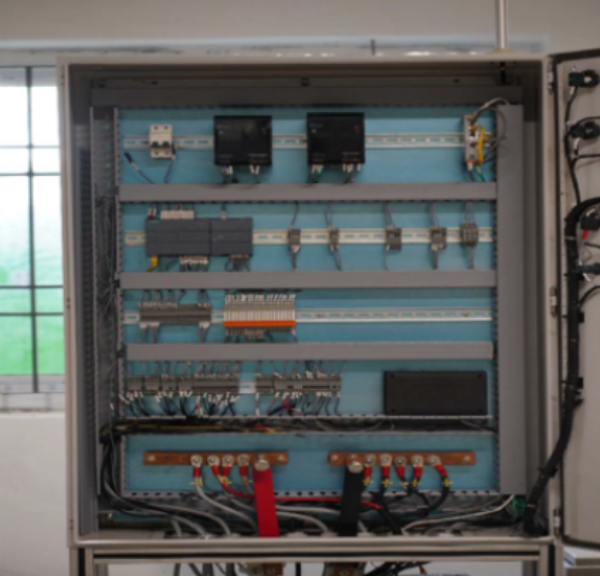The BMS manages charging/discharging of lithium-ion battery packs and communicates via Modbus RS485. It integrates with HMI for user interface, PLC for system control, IoT Edge device for remote monitoring, and relay to control the generator charging process.
User Interface:
Monitoring:
Control:
Security:
Equipment Highlights:

Sri Sairam Engineering College’s CDAC IoT Research Lab stands at the forefront of fostering innovation and research in the rapidly evolving field of the Internet of Things. Established through a collaboration with C-DAC Bengaluru, the lab serves as a multidisciplinary hub for students and faculty passionate about exploring IoT technologies and applications.